Women in Food Making Waves in 2021
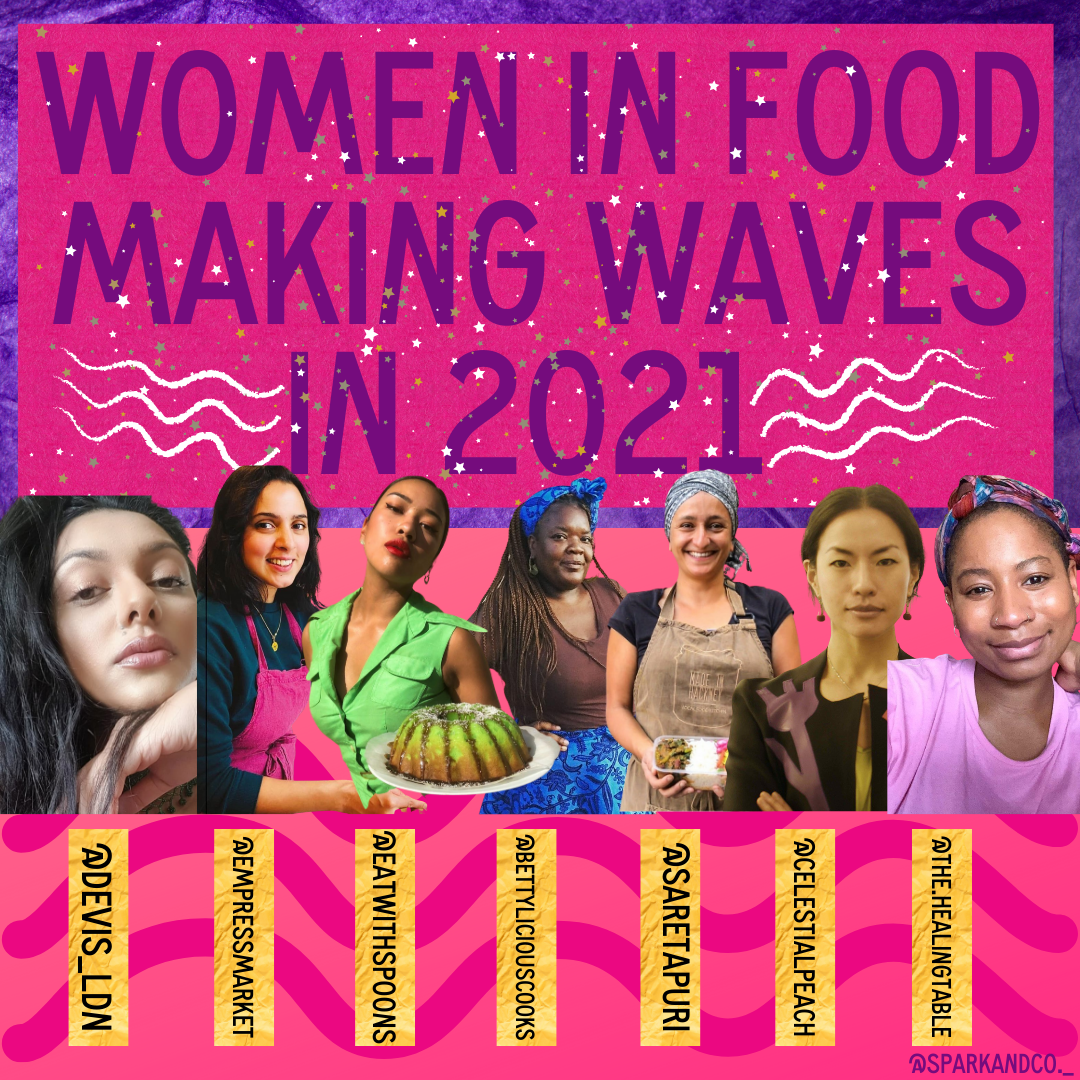
We sat down with seven amazing women who are fighting to make the food industry a more representative place, through COVID-19 and beyond.
An accountant hosting Indonesian supper clubs in Hackney, a vegan chef who’s just travelled to Sierra Leone and is creating a book platforming women of colour’s (WOC) food stories from around the world.
How do they relate to ‘food activism'? What inspires them to stay true to what they are doing? Many spoke of how food has helped them gain confidence to do something they believe in, and connect with their heritage. We hope it encourages you on your own journeys!
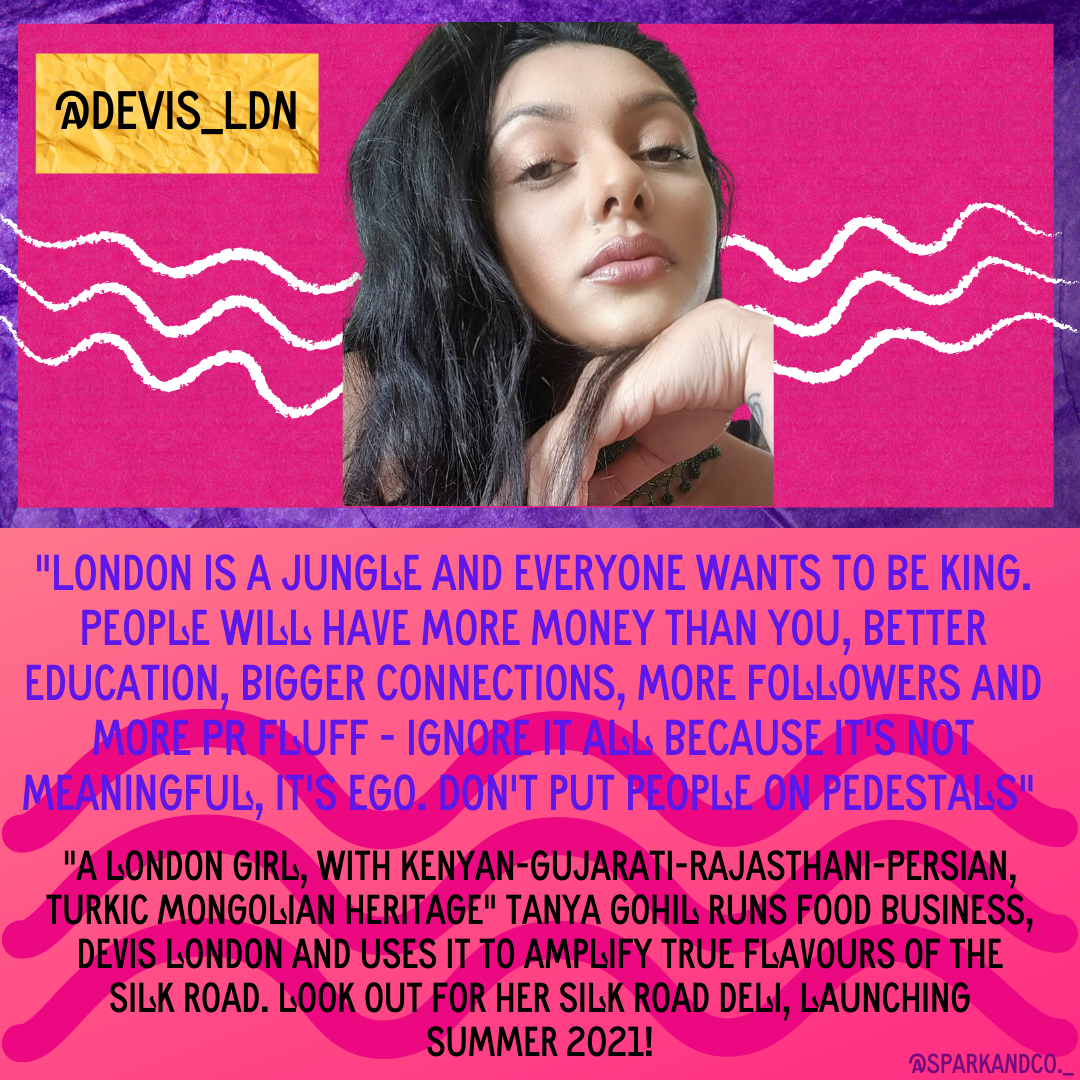

A large part of Devi's is platforming food from the Silk Road, an amalgam of travel, exploration, knowledge, expertise, cultures, traditions, people and flavours - from Southeast Asia to the Mediterranean and everything in between. Too often food from these regions gets labelled as too ‘ethnic’, ‘unsophisticated’ or ‘unrefined’. It’s a job actively changing this perception but spotlighting and celebrating the contrary helps.

I started Devi's in 2014 to escape obnoxious management and the tedium of boring work and conventional adulthood. Having now worked in London's food scape for the last seven years, my eyes opened to the politics surrounding the industry: food scarcity and inequality, race, class, gender, privilege, elitism, gatekeeping, cultural appropriation, ego, narcissism, ruthless competition, nepotism, the ‘old boys club’, food PR, food media, food ‘influencers’ and insta fame. It slowly percolated an intense dislike and sense of helplessness and frustration. Instead of harbouring those emotions, I started sharing them out loud.


It's incredibly difficult trying to both build and keep alive a small food business in London. London is a rich kid's playground. Most of my peers are being squeezed out.


- Transparency in the industry is rare and fleeting
- People need to earn your respect and your trust
- Find what gets you going and sincerely honour it

Anna Sulan Masing, Zsarina Muhammad, Zing Tsjeng, Ruby Tandoh.


I thought of The Healing Table initially as a mental health space - I wanted women to be able to come somewhere and talk and eat together, no matter what skill level. Last year I had a baby and didn’t go back to work (in kitchens). I decided - sod it - to put my energy into doing something with writing food and community.

- Trust in the process.
- Have the confidence and don’t compare yourself to someone else.
- Stay in your lane.

I’ve struggled with that label my whole career. For people who are creative like me, this can be quite stunting. Maybe we need to rewrite how we see that. People getting uncomfortable should be part of that change: 'I’m a chef, I’m a writer, I’m a creator’ and that’s okay.


I feel like I’ve only just started tapping into the food from where my grandmother’s from. My grandparents were born in Barbados and Sierra Leone. There’s something about getting older and wanting to touch your roots more. I want my baby to know where he’s from.


My number one way is cookbooks. I find the evocative nature of the way food is described really beautiful. I also love travelling - learning the way people eat fascinates me.




Spoons is a passion project and way for me to continually stay in touch with and pay respect to my roots. Loads of reinterpretations of Indonesian dishes in the Western eye are watered down and inaccurate - “gado-gado peanut salad” (gado-gado without peanuts is just boiled veg) “chicken in satay sauce” (satay means skewered) - this started to really really irk me.







It started as a vegan Chinese food blog; highlighting how misunderstood Chinese cuisine is, and how it can be the most soul-satisfying food when you utilise its ingredients correctly. The whole adventure has turned into a different type of soul-satisfying; the act of eating as a way to connect with your heritage and to define your identity.


It has encouraged me to use my voice for more altruistic purposes. The rise in Sinophobia and the unacceptable increase in anti-East and South-East Asian racism.


Whenever I need guidance, I turn to the Tao Te Ching by Lao Tzu.
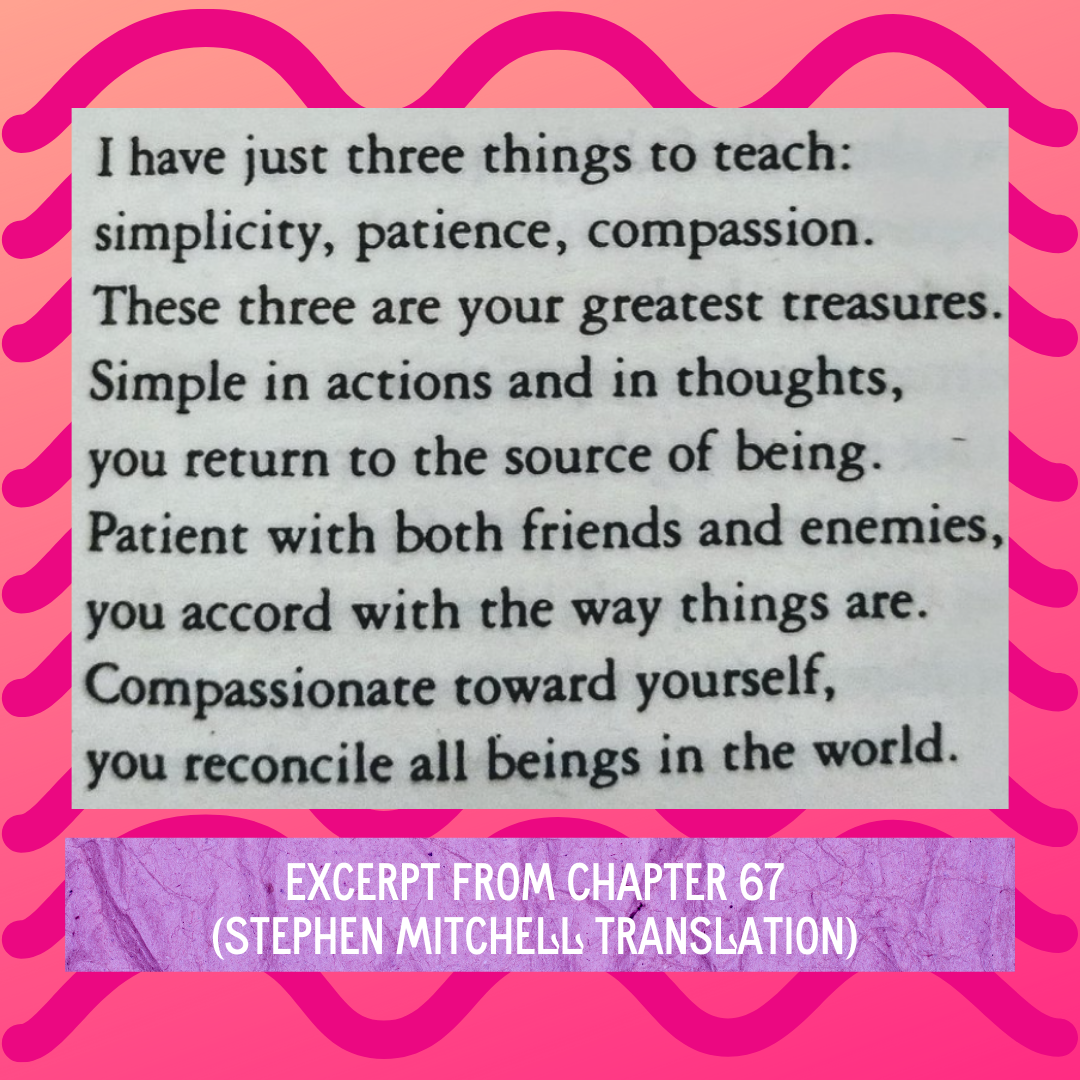

Initially, #HumansOfChinatownLondon was a feel-good project to celebrate Lunar New Year 2020, and highlight the characters who contribute to and make up Chinatown. In a way, it was the last living documentation of Chinatown London before COVID-19 changed everything:
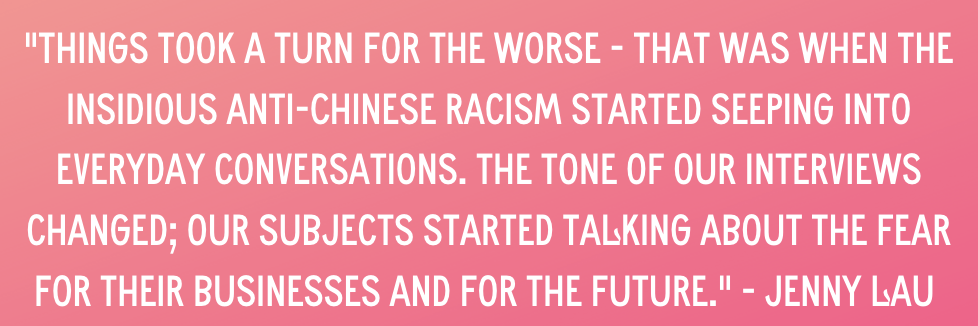
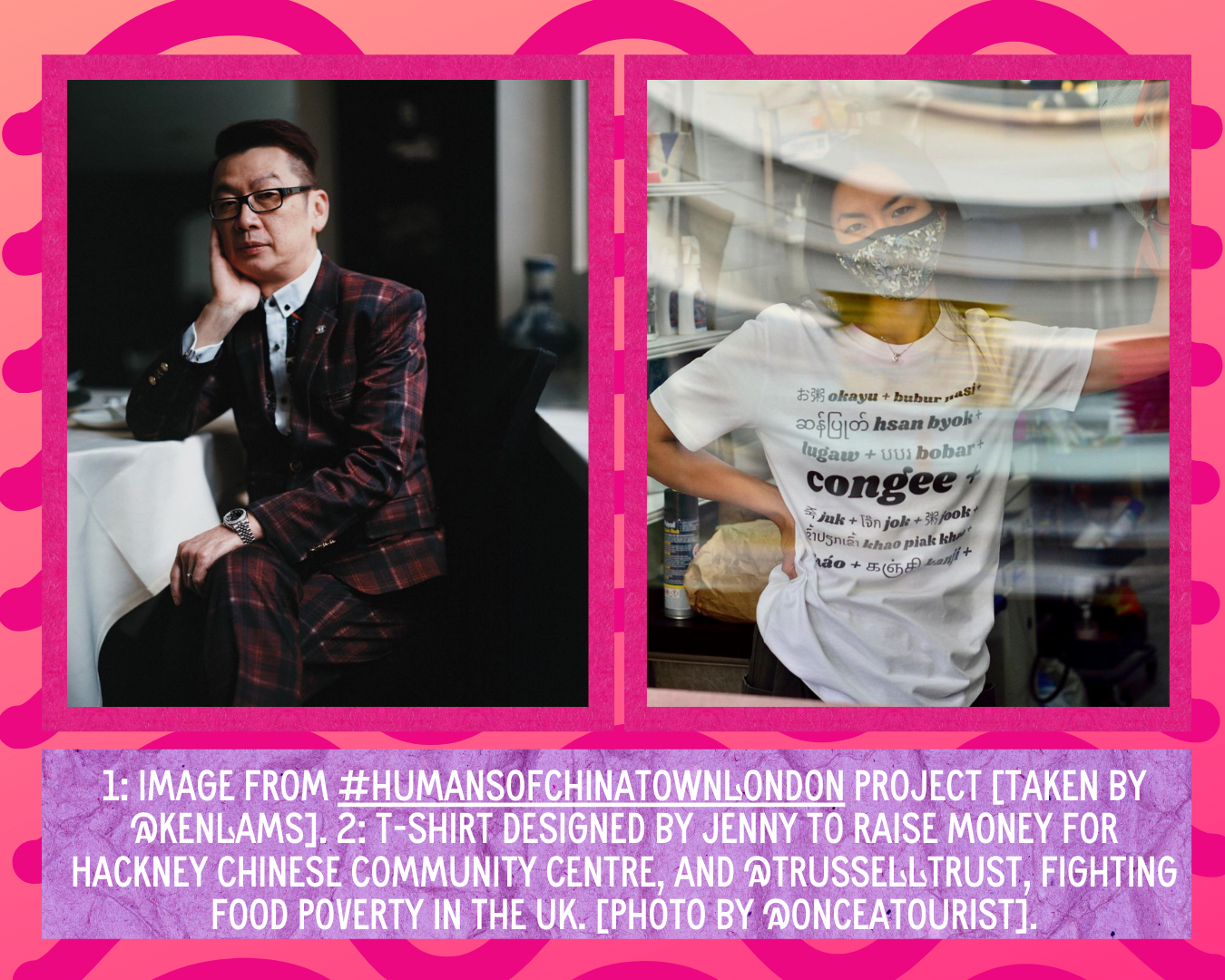

Grace Young (#SaveChineseRestaurants).
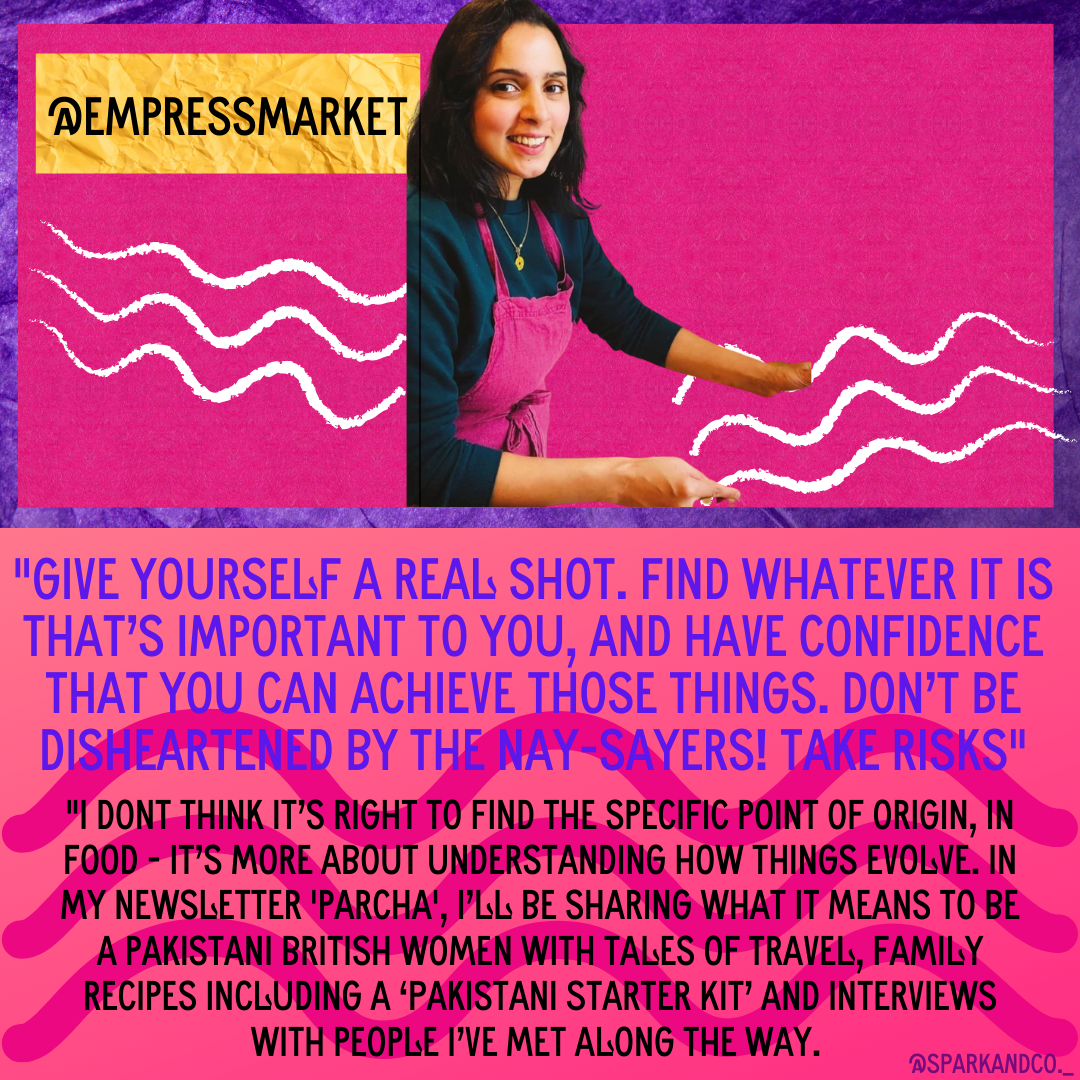

Empress Market is about telling stories of how I learnt to appreciate and understand my culture through cooking. It started as a food business and now I’m telling those stories in my newsletter, Parcha.


Being a woman chef, I found I was constantly not being allowed to ‘sit at the table’. I thought screw that - I’m going to set up my own business where people can come to my table and share stories.

My cooking is rooted in my grandma’s cooking, but it is very much in my own style. Food triggers all your senses and this is the basis of how I learnt; I hear a certain song and it gives me flashbacks to the smell of frying onions or biting into halva at a wedding.


I draw inspiration from travel, meandering markets in Brixton and picking up the vegetables - so many things! Last year I was in Cambodia working as a Chef. I learnt how to make harong curry paste and we’d pull fresh turmeric from the ground! It was magic.


My newsletter, Parcha! From my favourite knife to interviews, it’s a celebration of Pakistani food and culture.

Alison Roman’s videos. Madhur Jaffrey.

Activism is knowing what your end-goal is and working towards that to make a change. It’s about being engaged in the whole process of what you’re doing. I do this through my writing, Made in Hackney work, Plant Based Planet Cookbook and other projects. It’s easy to get lost and under-appreciate what you do. But change can be done in lots of different ways.


Understanding the why is very important. What change are you trying to make in the world? Write down your achievements and things you don’t naturally give yourself credit for.


I’m half-Scottish half-Indian, and grew up in a really white area of Edinburgh. I remember wanting to be ‘normal’:

Food connects and nourishes people, and is a way in which I am able to pay respect to my culture, a culture that has been taken away because food has been so colonised.



One year ago I started on a journey that would transform my entire adult life. At 19, I can remember purchasing the Lonely Planet, West Africa edition. I had come out of a physically and emotionally abusive relationship, a miscarriage of my baby that I had wanted so much to live and love.

My Lonely Planet gave me hope that I could explore independently, plan my own journey, visit places and create memories. But eventually it died down and I got back to living life, finding safety and security in the kitchens of hotels and events.



- Walk in your own shoes.
- Keep growing, and grow together.
- To women who think it’s all over: Do it sis! You’ve got that one life! Let them watch!

...wait and see in the book!
A huge thank you to all of the women who took time to share their stories. It was an incredible process to have these conversations. Please do follow them and their upcoming projects.
Want to discover more about food?
- Read these comfort food recipes from pro chefs to sustain you in lockdown!
- Check out these photos and reflections from Tara Rudd's trip to Bengal and the language of food
- Discover the food stories of restaurant and stall owners in Tooting in Tara's photo series
- If you need further support, our Essentials and Housing section for a list of organisations providing emergency food and essential support
This piece was written by one of our Community Ambassadors, Content Creator and food activist, Tara Rudd. Find out more about Tara here.
